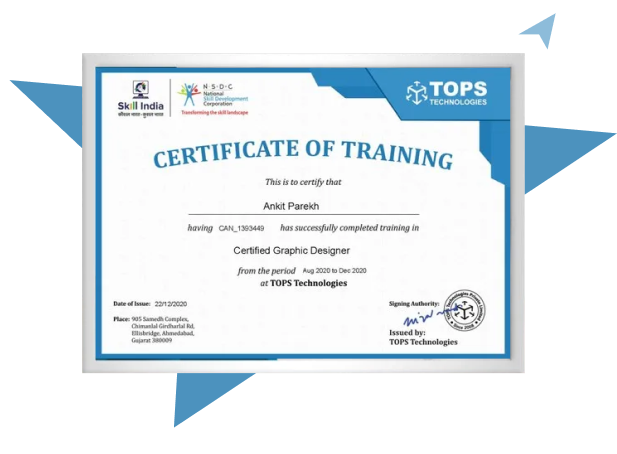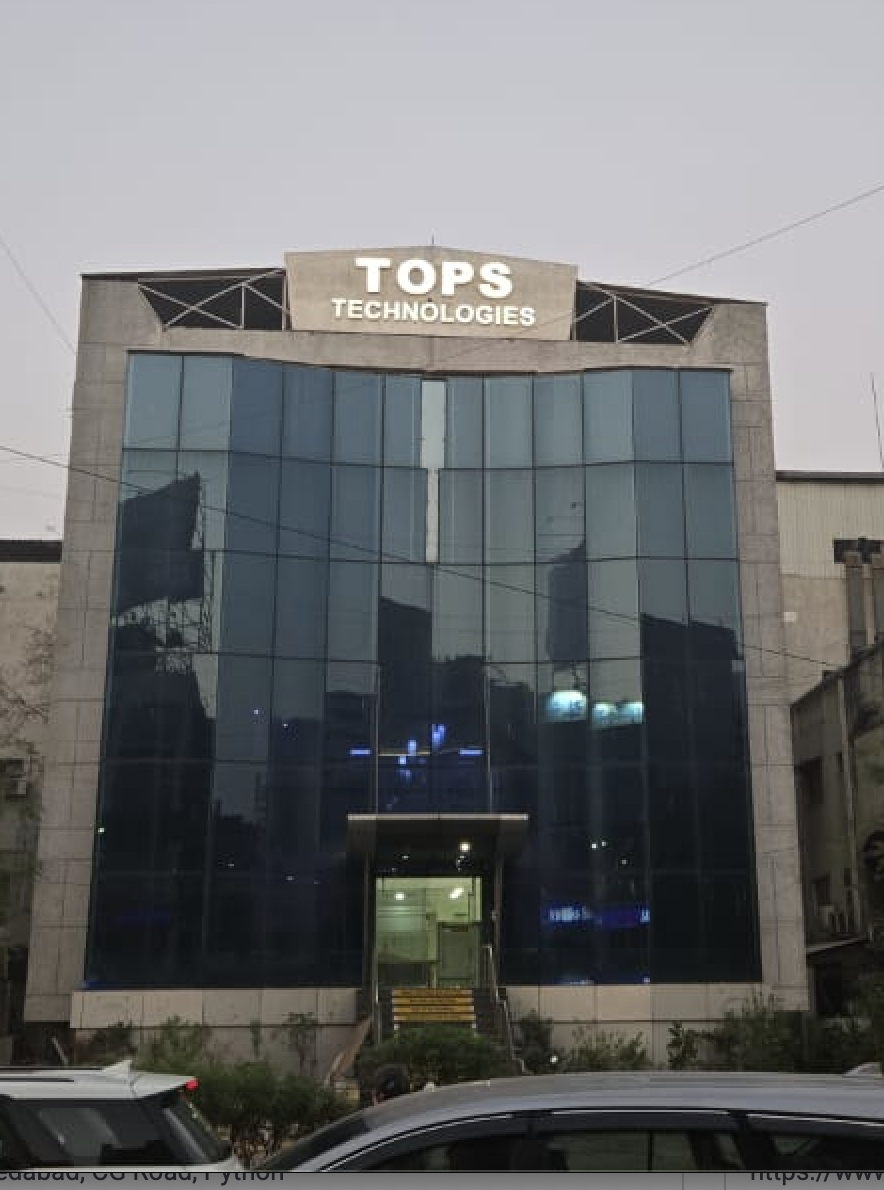Our Facts and Figures
1 Lac+
Student Placed
3000+
Companies TieUp
19+
Offices in India
50+
Industry Courses
Get 100% Job Assistance by enrolling in Certified Cloud Computing Training Course
Key Highlights
Limited Students Batch
Personalised Attention
Highly Qualified Teachers
Flexible Batch Timings
Interactive Learning
Live Projects
Career Support
Job Oriented Training
Cloud Computing Course Highlights
Cloud Computing is a delivery of computing devices such as hardware and software over the internet. One real-life example of cloud computing is Gmail launched by Google where you can access their data over the Internet from anywhere. The major benefits of Cloud Computing are: It reduces hardware storage cost, fast, reliable, secure, high performance, and less network latency.
The Rise of cloud computing is profoundly changing the skill sets needed for success in modern technology environments. As the cost of computing methods and applications rises along with the threat of security; companies are looking for Cloud-based solutions for hosting applications, software products, and platforms. TOPS Technologies Certified Cloud Computing Training Course is divided into Infrastructure As A Service ( IAAS), Software As A Service ( SAAS), Platform As A Service ( PAAS).
The Cloud computing Training course at TOPS Technologies will help the candidate understand Configuring of a Cloud, setting it up as well as maintaining it with Clusters and backups. By taking Cloud computing training from TOPS technologies, students can apply in a cloud software engineer, cloud architect, cloud system administrator.
Sounds good? Want to join this course or know more information about certificate, duration, fees? Let us know by emailing us on inquiry@tops-int.com or visit your nearest TOPS institute. TOPS Technologies centers are located in Ahmedabad, Rajkot, Surat, Gandhinagar, Nagpur, and Vadodara.
40%
Average Salary Hike
4.5 Lacs
Highest Salary
3000+
Hiring Partners
Join Our Free Upcoming Webinar
How AI Is Transforming Data Analysis in 2026
06 Feb 2026, 04:00 PM
Trainer
Kaushal Kalariya
(Sr. Technical Trainer)
Cloud Computing Course Curriculum
Download Curriculum- Contrasting Cloud Services
- Contrasting Cloud Delivery Models
- Cloud Characteristics and Terms
- Object Storage Concepts
- Differences in Hypervisor Roles
- Install, Configure, and Manage Virtual Machines and Devices
- Virtual Resource Migration
- Benefits of Virtualization in a Cloud Environment
- Virtual Components Used to Construct Cloud
- Environments
- Storage Technologies
- Storage Configuration Concepts
- Storage Provisioning
- Network Configuration
- Network Optimization
- Troubleshooting Basic Network Connectivity Issues
- Common Network Protocols, Ports, and Topologies
- Hardware Resources and Features Used to Enable
- Virtual Environments
- Input, Output and Multiple Devices
- Device Cables and Connectors
- Physical Interface Connections
- Wireless Device Connection
- Expansion Card
- Display Types and Technologies
- Display Cables and Connectors
- Designing Custom Computer Systems
- Resource Monitoring Techniques
- Best Practice for Appropriate Allocation of Physical Host Resources
- Best Practice for Appropriate Allocation of Virtual Guest Resources
- Appropriate Remote Access Tools
- Network Security Concepts, Tools and Best Practices
- Storage Security Concepts, Tools and Best Practices
- Encryption Technologies and Methods
- Identifying Access Control Methods
- Implementing Guest and Host Hardening Techniques
- Policies and Procedures in a Cloud Environment
- Diagnose Remediate, and Optimize Physical Host Performance
- Host and Guest Performance Concepts
- Implement Appropriate Testing Techniques
- when Deploying Cloud Services
- Disaster Recovery Methods and Concepts
- Deploying Solutions to Meet Availability
- Requirements
Our TOPS Training Centers in India
Course Key Features
- Learn Cloud Computing Concepts and drive hands on skills
- Build knowledge from beginner level to advanced concepts
Skills Covered
- Cloud Computing Concepts
- Cloud Architecture
- AWS Basics
- AWS Storage
- Automation on AWS
- Containers and Serverless Computing
Job Roles
- Cloud Computing Specialist
- Cloud Engineer
- Network and Cloud Engineer
Get Training Certificate by Government
Recognized NSDC/Skill India

- National Skill Development Corporation
- Supported by the vision of PM Shri Narendra Modi
- Certification by NSDC SkillIndia
- Valid for all Jobs and College Training
- International Recognition

FAQ
This course combines foundational networking knowledge with cloud technologies, teaching how hardware infrastructure supports cloud environments and services like IaaS, PaaS, and SaaS.
Basic understanding of computers and networking concepts is helpful, but the course is structured to accommodate both beginners and intermediate learners.
Yes, the course includes practical sessions on setting up virtual networks, managing IP configurations, and connecting on-premises infrastructure to the cloud.
Absolutely. Students will gain practical experience using platforms like AWS, Microsoft Azure, or Google Cloud along with hardware-based network simulations.
You gain the ability to design, deploy, and manage secure cloud environments backed by strong hardware networking fundamentals—skills that are in high demand across industries.
Yes, you will learn about hybrid cloud infrastructures, which combine private and public clouds for flexible and scalable IT solutions.
Graduates can work as Cloud Network Engineers, System Administrators, Cloud Support Technicians, or IT Infrastructure Specialists.
Yes, the course covers virtualization technologies like hypervisors and virtual machines, which are essential for cloud resource allocation and management.
Definitely. You’ll explore cloud-specific security practices, identity and access management (IAM), encryption, and compliance in cloud infrastructures.
Yes, it helps build a strong foundation for certifications such as CompTIA Cloud+, AWS Certified Cloud Practitioner, and Microsoft Azure Fundamentals.
Interview Questions
Hardware networking ensures seamless data transmission between cloud servers, storage, and user devices. Reliable network setups with routers, switches, and firewalls enable stable, secure cloud access and optimize performance in virtualized environments.
IaaS provides virtualized hardware resources like servers and storage, while PaaS offers a platform with tools and services for application development. IaaS focuses more on infrastructure, and PaaS simplifies development by abstracting underlying systems.
Virtualization allows multiple virtual machines to run on a single physical server, maximizing resource use. It's a core technology in cloud computing, enabling scalability, flexibility, and cost efficiency in delivering services.
Essential components include routers, switches, firewalls, load balancers, and virtual private networks (VPNs). These devices manage connectivity, traffic distribution, and security across on-premise and cloud-hosted services.
A VPC is a logically isolated section of a public cloud where users can launch resources in a controlled virtual network. It offers enhanced security and customization, mimicking traditional data center environments in the cloud.
DNS (Domain Name System) translates domain names into IP addresses, enabling users to connect to cloud services. Cloud providers often offer scalable, reliable DNS management to ensure smooth access to applications and data.
Securing cloud traffic involves encryption (like TLS/SSL), firewall rules, VPNs, and identity management. Regular audits and access controls further help ensure that only authorized users interact with cloud systems.
Cloud load balancing distributes incoming network traffic across multiple servers to ensure no single server is overwhelmed. This improves performance, availability, and reliability of applications and services.
Hybrid clouds combine public and private clouds, offering flexibility, scalability, and cost-effectiveness. Organizations can keep sensitive data on-premise while leveraging the cloud for less critical workloads.
SDN separates the control plane from the data plane, allowing centralized, programmable control of network traffic. It increases agility, simplifies management, and supports dynamic scaling of cloud infrastructure.
Latest Blogs
Cloud Computing - Amazon AWS | What is Cloud Compu...
Windows Azure is a platform built by Microsoft allowing thousands of users across various countries...
View full Blog








